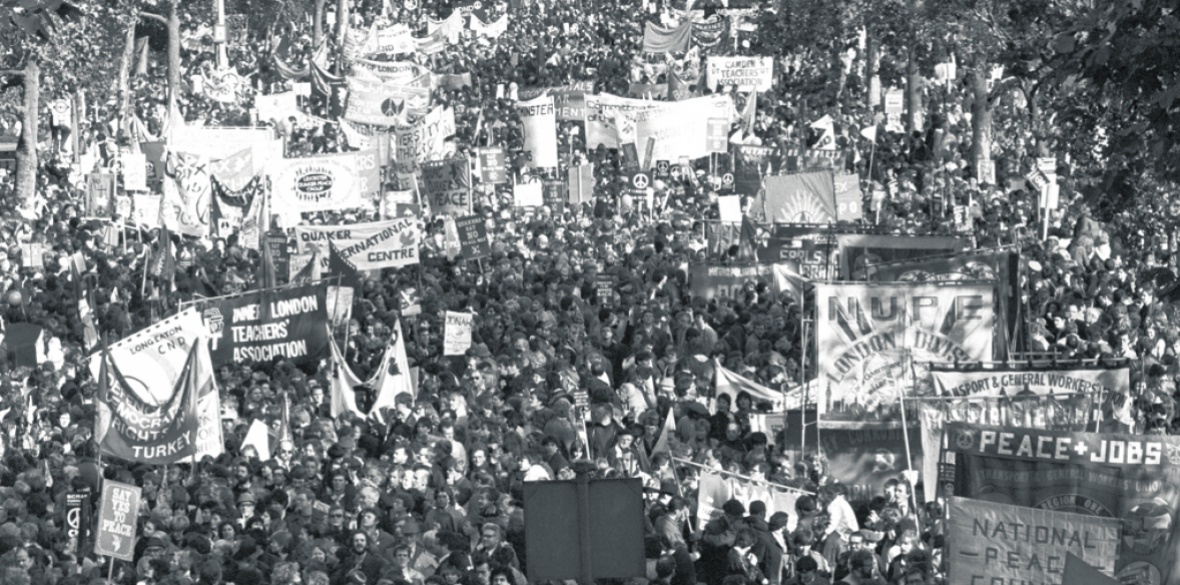This is the last article you can read this month
You can read more article this month
You can read more articles this month
Sorry your limit is up for this month
Reset on:
Please help support the Morning Star by subscribing here
LAST week the Sunday Times tried one of those “Jeremy Corbyn has anti-Western views” stories, highlighting the Labour leader’s opposition to the US bombing of Libya in 1986.
However, it didn’t consult basic historical sources like, er, the Times, because in 1986, in the wake of the US air raid on Libya, the Times reported that its opinion poll showed “a clear majority of the British people” — 66 per cent — disapproved of President Reagan’s decision to bomb Libya.
Neil Kinnock, Labour leader at the time and some Times writers also condemned the bombing raid. Either 66 per cent of British people were “anti-Western” or the story is balls.
Republican US president Ronald Reagan ordered the bombing raid on Libya in retaliation for a terrorist bombing in West Berlin that killed two US servicemen.
The US said former Libyan president Muammar Gadaffi’s regime had helped the terrorists who set the bomb in a disco frequented by US servicemen.
Some years later, in 1996, the bombers were arrested and tried in Berlin. German investigators found a mix of Palestinians and one Libyan agent were involved.
There is no doubt Gadaffi’s government were willing to back some nasty terrorism, but general awareness that Gadaffi was a bad man didn’t translate into enthusiasm for the retaliation bombing raid.
The bombing killed many civilians without disturbing Gadaffi’s rule. He lived on to be alternately supported by and attacked by Western governments.
The Sunday Times claims that Corbyn’s support for a Commons motion against the bombing “illustrates his anti-Western views that ultimately led to his attempted recruitment by the controversial Czech spy Jan Sarkocy later that year, ” which is doubly wrong.
Corbyn’s views on the Libyan bombing were in line with public opinion at the time and Sarkocy did not try to “recruit” Corbyn — he was just one of the many people he met while pretending to be a diplomat.
Many writers of these smear stories about Corbyn in the 1980s talk about a “cold war,” with Labour people working with the “enemies” of the West.
They are trying to make ’80s Britain sound like ’50s “red scare” United States as if that would have been a good thing, but, at the time, Thatcher and Reagan couldn’t get the mass of people to sign up to their cold war attempt to divide the world into “friends” and “enemies,” especially as the supposed “friends” of the West looked so unlovely.
Reagan and Thatcher wanted people to be in favour of cruise missiles, support South Africa’s apartheid government and back the murderous contras in Nicaragua.
But millions of people, including those who believed the USSR was a repressive state, wouldn’t back the “friends vs enemies” approach.
The evidence that people rejected Thatcher and Reagan’s cold war is so deep and wide that journalists make extra efforts to pretend the opposite.
Protest movements against the cold war, like CND, were huge. Opposition to cold war foreign policies, like the Anti-Apartheid Movement, was massive.
Opposition parties also rejected the cold war. Labour leaders like Neil Kinnock and Michael Foot were happy to meet diplomats from the “eastern bloc” not because they were “pro-Russian” or secret agents but because they believed in dialogue to overcome “cold war.”
That said, both Foot and Kinnock, like Corbyn, faced absurd media allegations that they were working with “enemy spies,” allegations that made a lot of noise and then fell apart.
Popular rejection of the whole Reagan-Thatcher cold war plan was ultimately successful. The cruise missiles and the apartheid regime are gone. Thatcher and Reagan themselves backed away from the cold war approach — in part because of the political pressure from below — and set out to negotiate with the “reformer” Russian leader Mikhail Gorbachov.
At the time everybody thought this was a very good thing, so it is very bizarre to see journalists trying to recreate an imaginary ’80s when there was mass support for a cold war that wasn’t.
They are pretending that there was a hunt for “reds under the beds” in the 1980s when there wasn’t and they are doing so because they want a “reds under the beds” hunt now.
PROGRESS FUNDING
PROGRESS, the “New Labour” pressure group, has turned to a former Tory donor for money.
Ever since billionaire Baron Sainsbury announced he was stopping his regular £260,000-a-year funding for the Blairite campaign group last year, Progress has been on the lookout for ways to replace the funds from its sugar daddy.
Its largest single source now is a £10,000 donation from Stephen Peel. According to the Electoral Commission, Peel has never donated to the wider Labour Party but gave Progress £10,000 in January.
In 2008, Peel gave the Conservatives £50,000, helping to fund the rise of David Cameron while Gordon Brown was prime minister.
Peel, a long-term private equity investor, is currently setting up a new firm, Novalpina Capital, to raise €1bn to buy companies in “Germany, the United Kingdom and France.”
Last June he gave £25,000 to the business-oriented pro-Remain group Best for Britain, where he sits on the board with the likes of Virgin chairman Peter Norris and former Labour minister and political PR consultant Baron George Mark Malloch-Brown.
Progress appealed for funds last June after Sainsbury, who had funded the group from the outset when it started life as Tony Blair’s leadership campaign, said he was going to cease political donations.
Last October Progress claimed to have “secured three years funding and substantially increased regular donations from our members and supporters.”
However, given that Progress only has around 3,000 members — the Corbyn-supporting Momentum, by contrast, claims around 35,000 members — there must be a limit to how much extra cash Progress can raise from its rank and file.
Donations from the likes of former Tory backer Peel look like an important part of the financial rescue plan.








